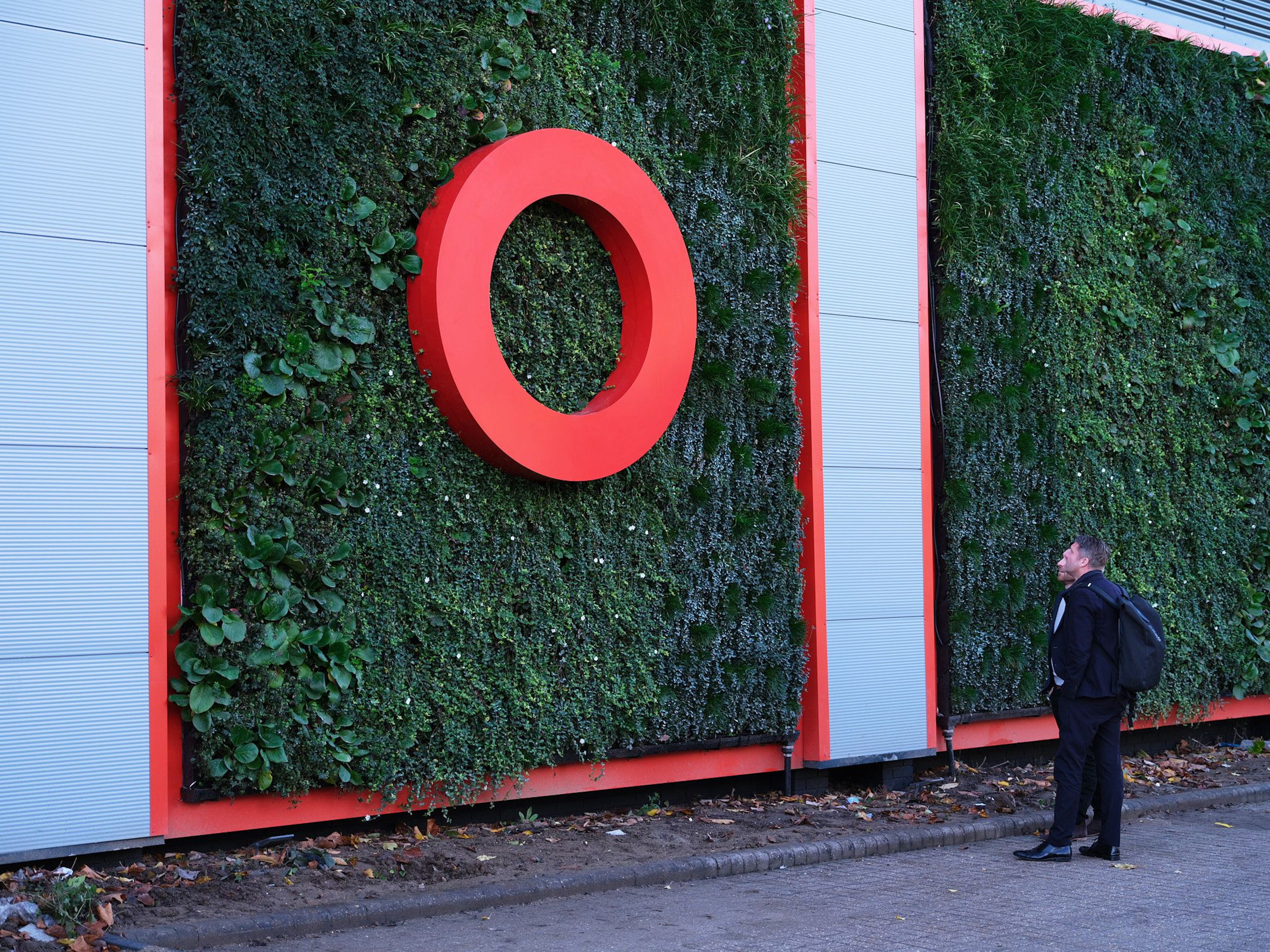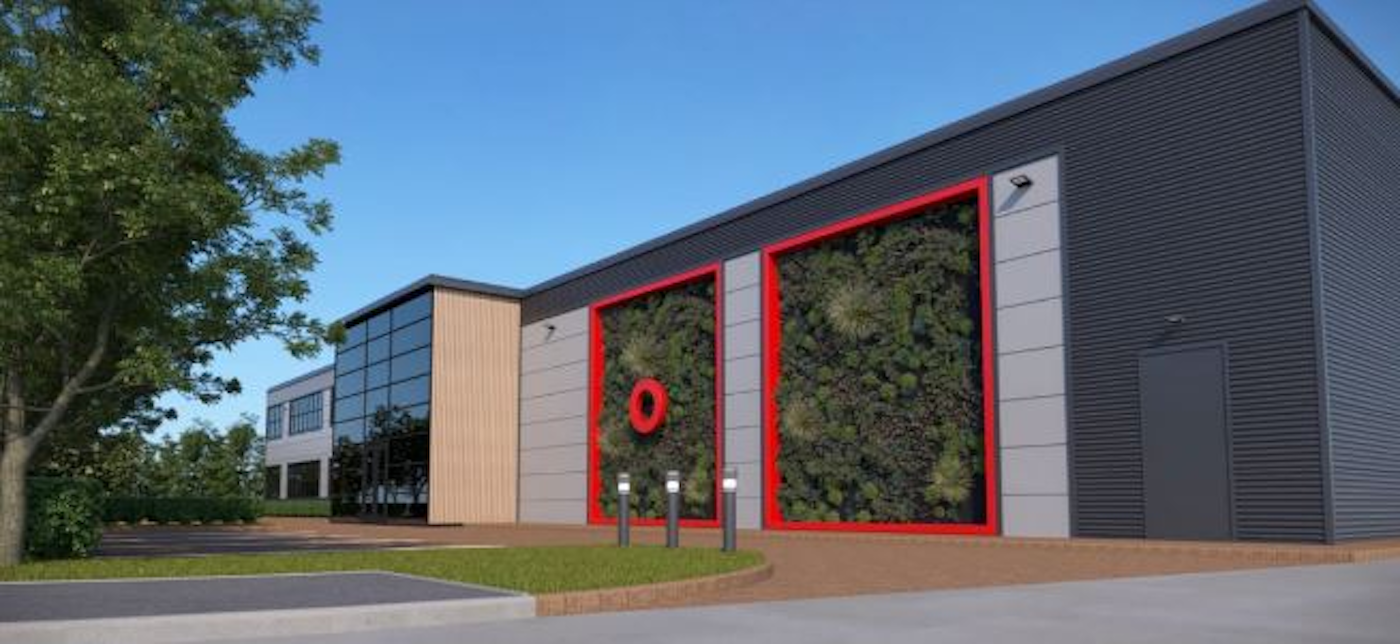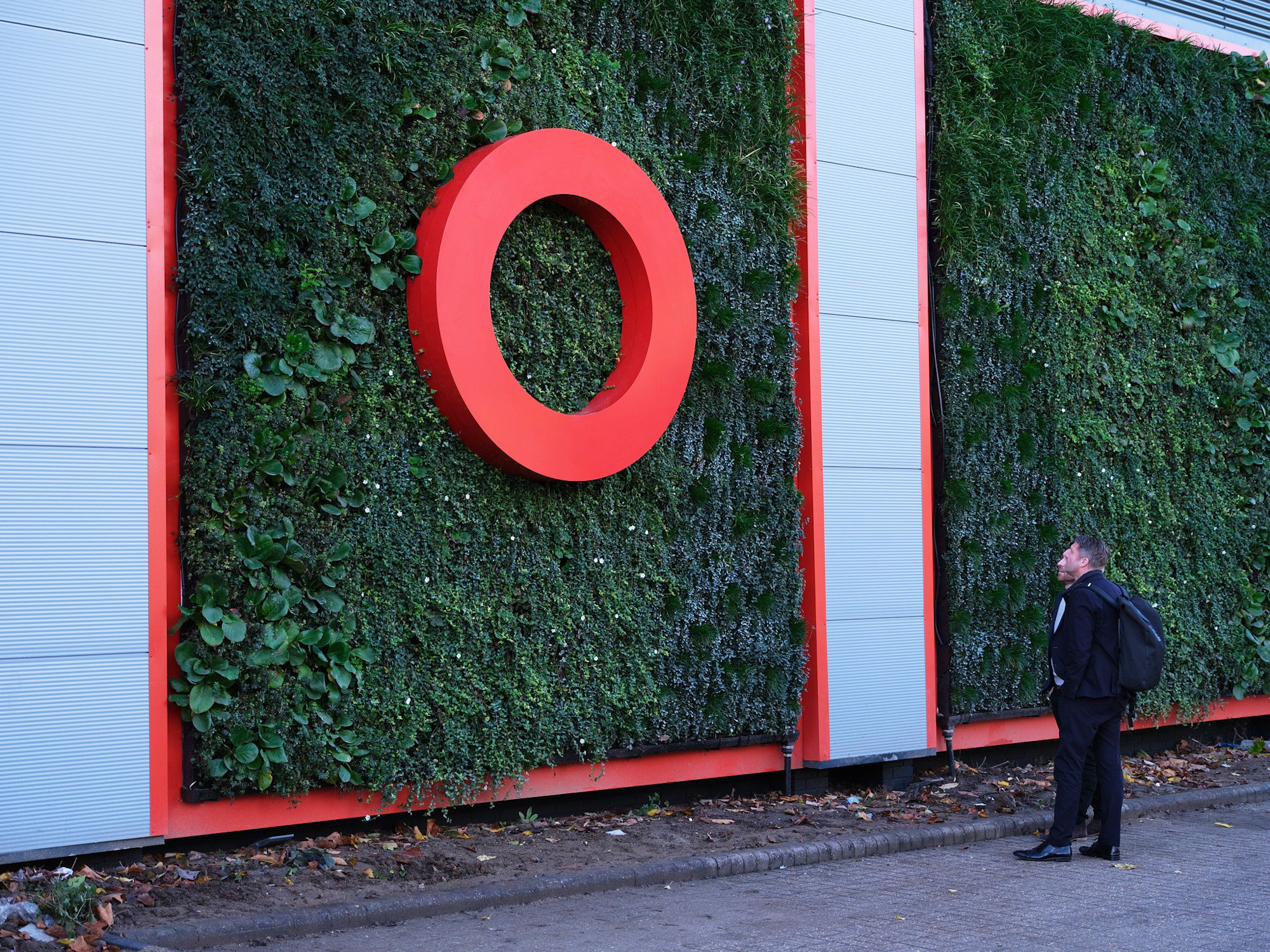Project Background
Newly refurbished with a sustainable focus, SEGRO’s estate in Bestobell road has an aim of achieving BREAAM ‘Excellent’ rating, using multiple sustainable strategies including use of renewable energy, natural materials and using methods to reduce water consumption.
Featured Solutions:
- Viritopia Living Wall System (Exterior)
Size: 54m²
Project Drivers
Biodiversity
Social Impact
Aesthetics


